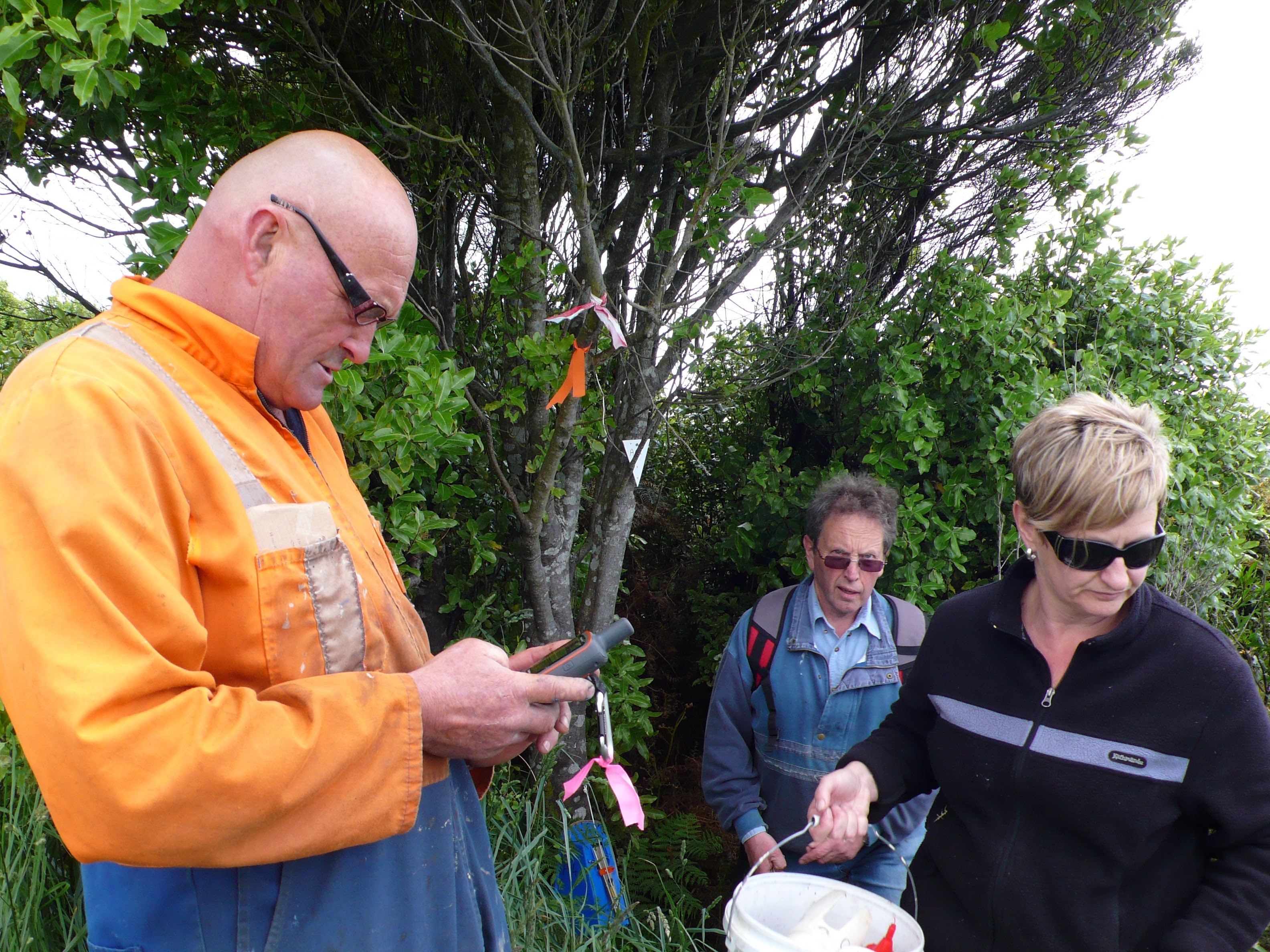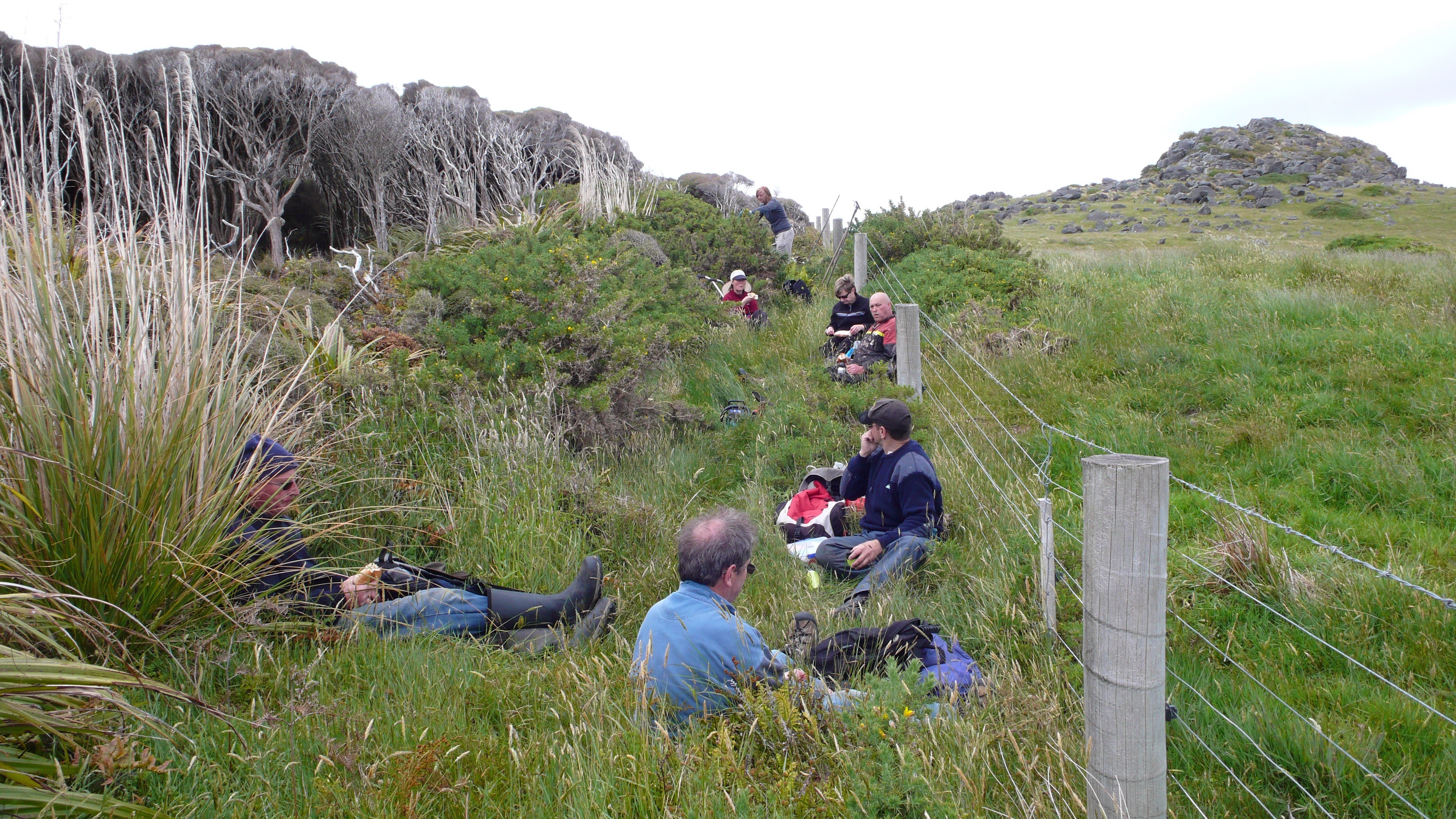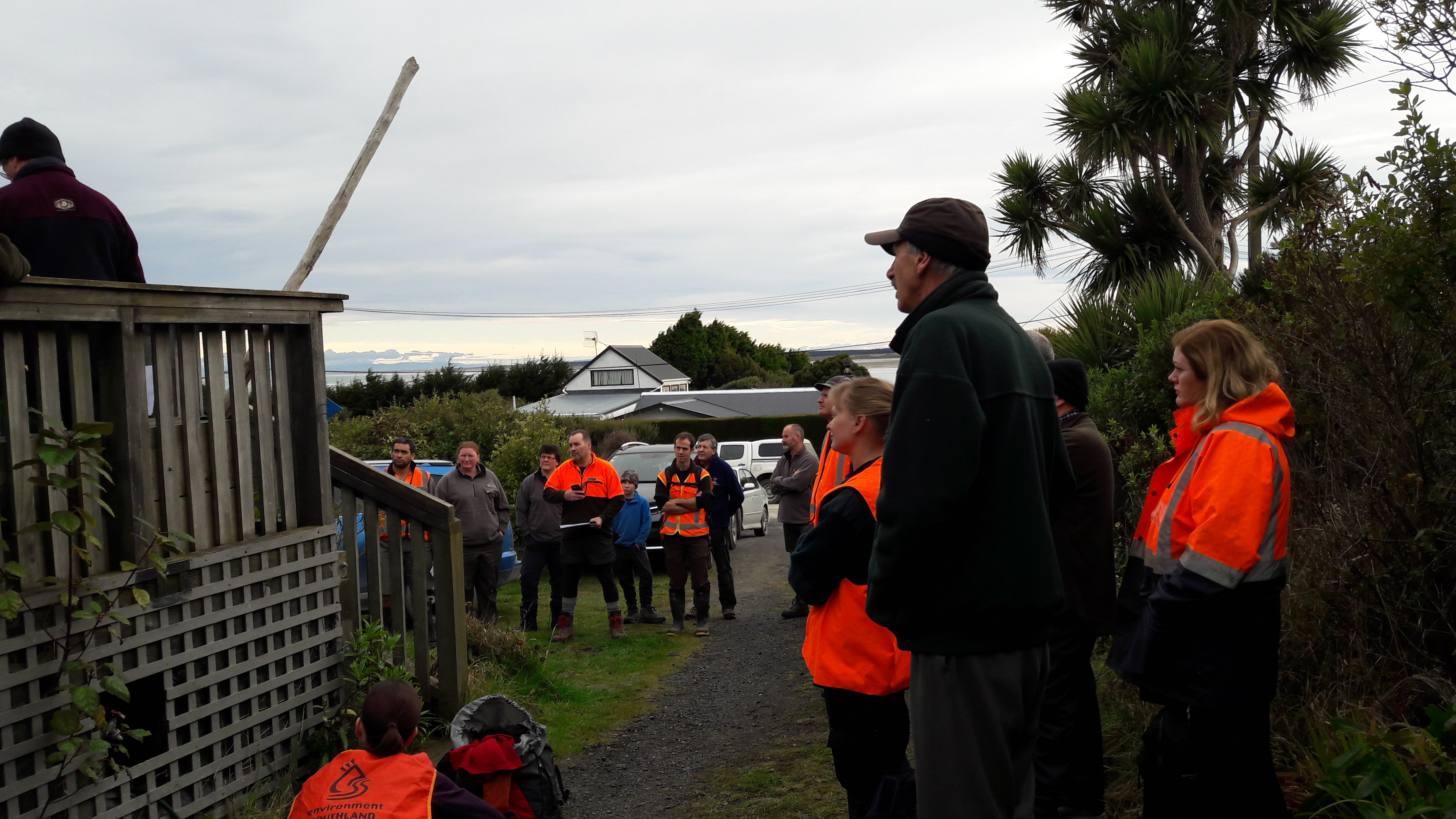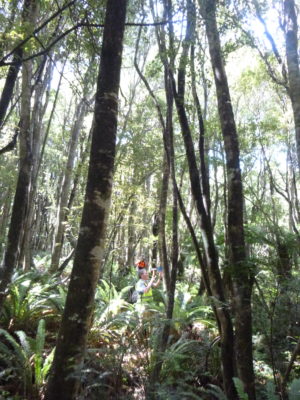A few years back, John Collins of Omaui got sick of shooting possums every night. He decided more needed to be done. Omaui is a small village of about 30 houses in Southland, located right at the mouth of the Oreti River estuary, opposite Oreti Beach.

“I’ve always been environment-minded,” says John, who is now Chairman of the Omaui Landcare Group, “But until I came to Omaui I’d never settled in a place where that feeling for the environment came out.”
Fed up with the seemingly endless number of possums, John began by approaching Environment Southland.
“I went to them for advice on setting up a group,” he explains. “They had a stock of traps and so one Saturday morning I knocked on every door in the village. Some people were interested enough to help out, so we worked in the Invercargill City Council Reserve.”
There are two reserves at Omaui, a small reserve of regenerating scrub – less than 20 hectares – managed by Invercargill City Council and a larger DOC reserve of over 200 hectares of original lowland coastal forest.
“It’s a lovely place,” John says, “with very old rata. Not many people know about it.”
John and his neighbours got rid of the possums in the ICC reserve quite quickly.
“But we realised there were other problems,” he says, “Rats, stoats, cats… We moved into the DOC reserve and the Department of Conservation came up with a plan for trap-lines. Volunteer labour cut 10km of trap-lines within the boundaries of the reserve, around the edge. Every 50 metres there was a trap station with a Possum Master trap and a Ka Mate rat trap and every second station had a DOC 200 trap. We got a grant from DOC and employed a contractor to put bait stations through the reserve.”

From these beginnings around 2013, the Omaui Landcare Group has grown from strength to strength. And it’s not just Omaui locals volunteering these days. The group also includes volunteers from the wider Bluff/Invercargill area who travel to Omaui to help out.
“We’re not particularly keen on using any toxins at all,” John says, “But it is the option that is working for us. In August 2015 we used 1080 in bait-stations to allow the birds a ‘window’ to nest. It went without a hitch and was successful in controlling possums, stoats, feral cats and rats – but the rats rebounded quickly. We repeated it in August 2016 and now the possum population is virtually under control. We realised though, that we needed an alternative solution to the rat problem.”
Fund-raising followed and the Omaui Landcare Group raised $100,000.
“We bought Goodnature A24 automatic rat-killing traps – 471 of them,” says John, “And this August they were all installed by volunteer labour. We get a lot of helpers from town,” he adds, “and we also work very closely with Environment Southland and DOC.”

The new set-up seems to be working well.
“Lots of dead rats have been seen,” says John, “But we can’t be sure of results yet until we see a tracking tunnel decline. We’re no longer operating the original perimeter trap-lines because they weren’t catching much anymore. We’re looking to technology from now on, with maybe toxins every five years if they’re needed.”
Currently the Omaui Landcare Trust is run by 8 trustees.
“There’s a good range of skills,” says John. “One of the good things about our group is that people have complementary skills. We allow people to run with what they’re good at.”
John sees his own strength as coming up with ideas and working “on the ground”. Others have good contacts and work on raising funds.
“There are a lot of good people involved in the Trust, doing a lot of hard work. One brief of our group was to involve as many from the community as possible, including older people. Those who are no-longer fit enough to do the outdoor volunteer work help out with other stuff.”

The bush is now in good health with a small population of kakariki hanging on.
“The bush is already there. We just need to look after it,” John says. “There are seeds popping up in the ground everywhere now. My mantra is to think 3 or 4 generations ahead,” he emphasises. “What sort of world do we want to leave them?”
Future-proof planning is part of that mantra.
“Groups can come and go, so we’ve set up the infrastructure so that in the future, if necessary, it can be picked up and run for a small cost and labour input. The A24s need regassing and rebaiting every 6 months which makes it relatively easy and not too costly to continue the work,” he says.
In the immediate future, John would like to see deer-fencing go up around the reserve.
“There’s deer farming in the area and we do get roaming deer and goats,” he says. “If we erected a fence and put in a professional hunter we’d make it a lovely pristine piece of original bush!”
Its early days yet for the Omaui Landcare Group – they only came into being 4 years ago – but their achievements in that time are impressive. And it all began because John got fed up with shooting possums.

